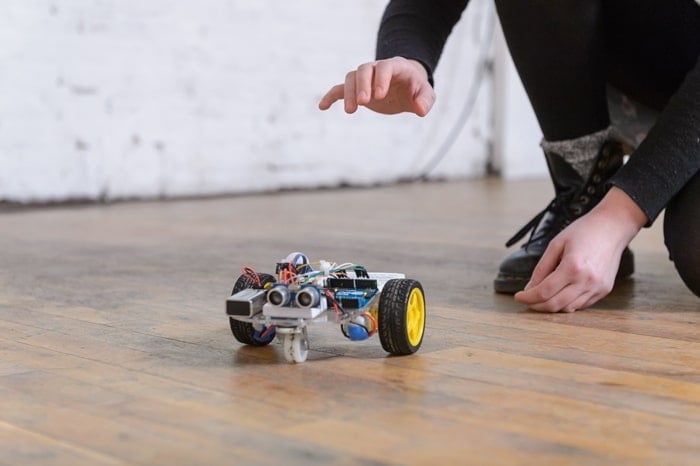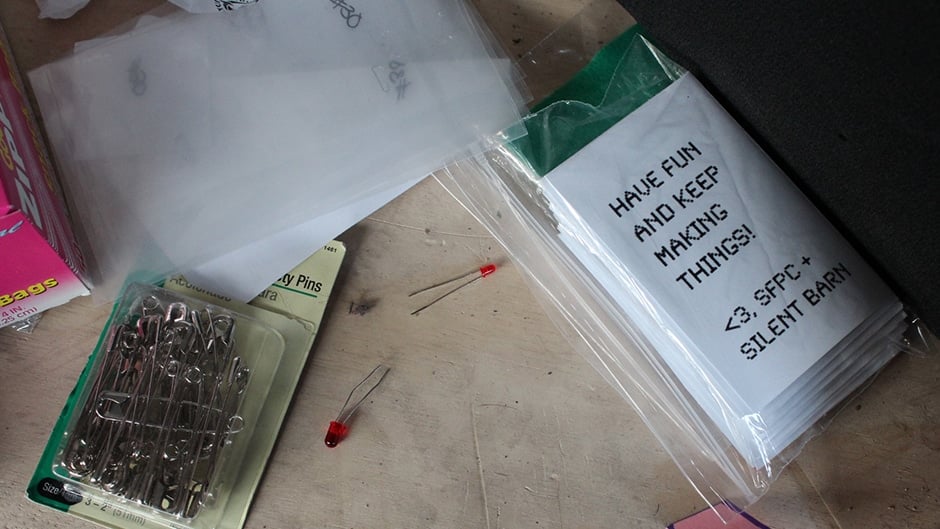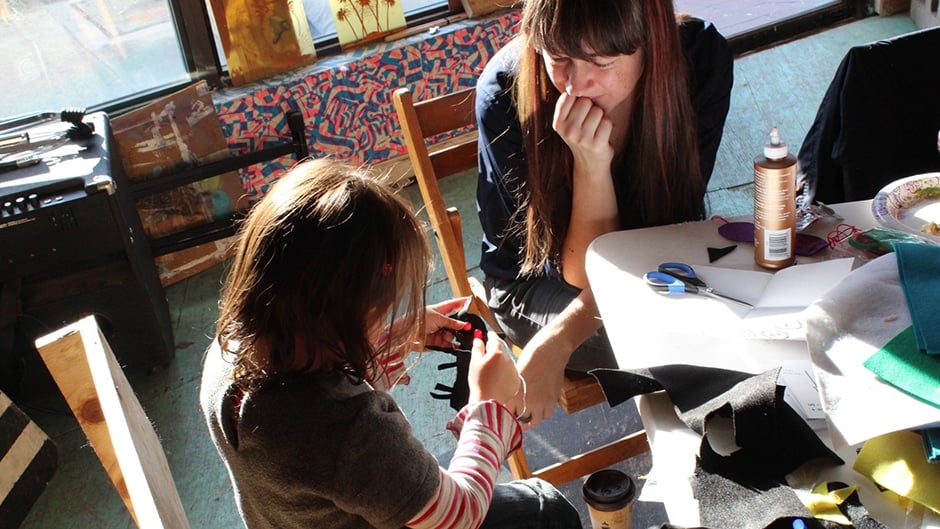Pixel Pushers: New York’s School for Poetic Computation is Art’s Answer to Coding Boot camps
Artists make no money but get to make beautiful things. Computer programmers make money — but have to do boring work.
…At least, that’s what most of us who have been shuffled through the American education system are led to believe.
New York’s School for Poetic Computation (SFPC) stands in stark contrast to the separation of computer science and the fine arts. Similar to “coding boot camps” like Hack Reactor and General Assembly that have sprung up to provide the practical web development education unavailable in most colleges, the SFPC is small, nimble, and results-oriented. The difference is, while coding boot camps strive to pump out node.js aficionados, SFPC is creating a different breed of computer programmer: the artist as technologist.
School For Poetic Computation is equal parts The Factory, childhood blanket fort, and mad scientist’s lab.
—Lee Tusman, SFPC student
Founded by an interdisciplinary group of creatives and scientists in 2013, the SFPC program centers around a loosely-structured 10-week program that brings together students from a variety of computer science backgrounds to create aesthetic-oriented digital projects. Presentations by students focus on the esoteric and whimsical questions of computer science: “When is a bug a feature? What are the boundaries of a user interface?”
Infused with this sort of high-minded intellectual thinking, SFPC is far more than a hackerspace for tweaking Raspberry Pis. (Not that hackerspace’s aren’t great. They are.)

While the school’s heart is in the arts, the initiatives created by SFPC students are far from high-brow; from visualization software for the criminal justice system to three-dimensional digital drawing tools, SFPC is already showing the practical and inspirational benefits to be had by exploring the fringes of our digital lifestyles.
The endeavors of this small group of artistic technophiles are about as far from the “there’s an app for that” mentality of Silicon Valley as you can get. For the arts community as well as the tech industry, that’s a good thing.
More information about the School for Poetic Computation, including session times and events, is available at their website.

— Words by VAGA Editors.

